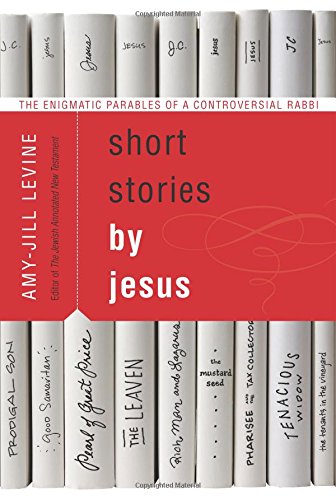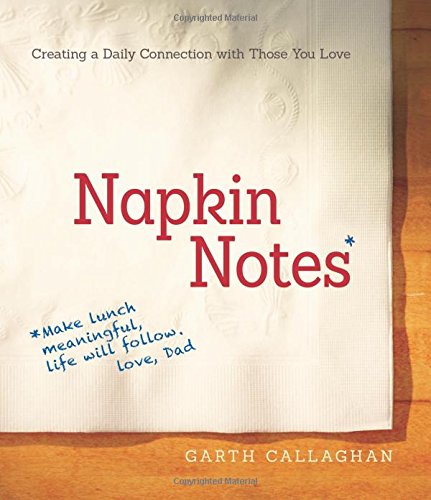Luke 10:28, How To Live
And he said unto him, Thou hast answered right: this do, and thou shalt live.
//A lawyer came to Jesus asking how he could obtain eternal life. Jesus asked what the Law says, and the lawyer quoted: “Love God with all your heart, soul, strength and mind, and love your neighbor as yourself.” Then Jesus said you’re right, do this and you will live.
The lawyer asks about eternal life and Jesus answers with how he can enjoy life today. This is an echo of what is written in the Law:
Ye shall therefore keep my statutes, and my judgments: which if a man do, he shall live in them –Leviticus 18:5
And the LORD thy God will circumcise thine heart, and the heart of thy seed, to love the LORD thy God with all thine heart, and with all thy soul, that thou mayest live. –Deuteronomy 30:6
So Jesus answers the question with a way of obtaining life in abundance on this side of the grave. This leaves us with a another question: Was the lawyer asking how to obtain a better life here and now, or did Jesus ignore the question about eternity and redirect it to the here and now?
I vote the former. In a long discussion in my latest book, I discuss what Jesus and others meant by “aionios life,” the Greek words translated into “eternal life” in today’s verse and others. It doesn’t refer to eternity the way we imagine; it refers to life in the age of God’s rule on earth. This age began with the arrival of the Messiah 2,000 years ago.

Book Excerpt: The River of Life
With heaven and hell relegated to a minor role, what are we supposed to look forward to? One important difference between liberal and conservative theology is the manner in which the two sides view Jesus’ second coming. Conservatives can hardly be criticized for being future-minded. They imagine a glorious day in which Jesus will descend back to earth, slaughter two hundred million people, raise the dead to life, and then fly away with all the good guys to an eternal existence beyond the clouds. Perhaps somewhere in this timeline Jesus remains on earth for a 1,000 year reign and perhaps not.
Liberal Christians and critical Bible scholars, however, often have a hard time with this picture. While it’s true the majority of the New Testament writers expected Jesus to come back, they also wrote with an intense urgency, placing all the excitement squarely in the first century … not two thousand years later. How can the second coming still be in our future? The following promises are all made by Jesus:
When they persecute you in this city, flee to another. For assuredly, I say to you, you will not have gone through the cities of Israel before the Son of Man comes.
And he said to them, “Assuredly, I say to you that there are some standing here who will not taste death till they see the Kingdom of God present with power.”
Assuredly, I say to you, this generation will by no means pass away till all these things take place.
Was Jesus wrong about this?
–The River of Life, Energion Publications, 2014 by Lee Harmon

Book review: Finding God In Suffering: A Journey With Job
by Bruce G. Epperly
★★★★★
I have a love/hate relationship with Job. If I’m reading an insightful exposition, one which highlights the deep, poetic messages of the book, I love Job. If I’m reading a dry commentary drawing traditional conclusions, I want to chuck Job in the round file.
Today I love Job again.
Epperly doesn’t pull punches, yet his writing is tender and honest. As he explains, reading Job is not for the faint-hearted. It is a theology which emerges from the vantage point of excruciating and undeserved pain. It is written in the place where the rubber meets the road. And it is the experience of every man and woman on earth.
The question of why remains unanswered. Are we really supposed to believe that Job’s intense pain is the result of God and Satan sharing a friendly wager? Is God really that amoral, acting no differently than the arbitrary behavior of the surrounding nations’ deities?
God’s ways are beyond our comprehension. Job’s spiritual growth requires stepping out of his comfortable paradigm where the universe is intricately structured, where goodness is always rewarded and evil is always punished, so that he can embrace the unknown and unsolvable … while retaining an intimacy with God even in times of pain. In this chaos, Job finally finds peace.
Here’s an interesting observation by Epperly: “I have found that many people are more reticent to question God’s omnipotence, his unrestricted ability to achieve his will, than God’s love. They can live with God causing cancer or a devastating earthquake, but worry that a loving God might not be powerful enough to insure that God’s will be done…”
Read this one; it’s a journey you don’t want to miss. You may find yourself losing faith in the God you thought you knew, only to find the living God. Comfort hides in deep waters.
Energion Publications, © 2014, 94 pages
ISBN: 978-1-63199-107-3

Luke 15:22, Another Side of the Prodigal Son
But the father said to his servants, Bring forth the best robe, and put it on him; and put a ring on his hand, and shoes on his feet.
//Yesterday, I suggested that the apology in the mind of the prodigal son stemmed from the words of Pharaoh in the time of Moses. Today we uncover another strange connection to the Pharaohs in this same parable. Compare today’s verse with this one:
And Pharaoh took off his ring from his hand, and put it upon Joseph’s hand, and arrayed him in vestures of fine linen, and put a gold chain about his neck; –Genesis 41:42
So now the prodigal is being compared not to an unrepentant Pharaoh but to a favored son who endured an undeserved hardship. I’m talking about Joseph, of course, who was sold into a foreign land, rather than chasing after riotous living. Is this yet another side of the prodigal?
Think, now, about these words from the father of the prodigal, and see if they don’t also ring a bell as you remember the father of Joseph:
For this my son was dead, and is alive again; he was lost, and is found. –Luke 15:24
I confess, I don’t know how all these Old Testament echoes are meant to be understood when Jesus told his story of the prodigal, but there are too many to be considered coincidence.

Luke 15:18, The Non-Repentant Prodigal
I will arise and go to my father, and will say unto him, Father, I have sinned against heaven, and before thee.
//Today’s words come from the mouth of the prodigal son in Luke’s Gospel. He rehearses these words to speak to his father when he arrives home.
This apology echoes the words of Pharaoh long ago:
Then Pharaoh called for Moses and Aaron in haste; and he said, I have sinned against the LORD your God, and against you. –Exodus 10:16
Is this choice of words meant to insinuate a lack of remorse on the part of the prodigal son? After all, Pharoah was hardly repentant.

Book review: Short Stories By Jesus
by Amy-Jill Levine
★★★★★
If this isn’t Levine’s best, it’s close. She writes from a practical, scholarly Jewish perspective, highlighting the world Jesus lived in. In this book she tackles the more controversial parables Jesus spoke, making an effort to put these stories back in their first-century Jewish setting.
Levine appreciates the depth of Jesus’s parables, and she digs deep in her analysis, but still seems content with an ambiguous meaning. She seldom insists on a single interpretation, yet often discards traditional Christian interpretations when they conflict with what she knows about first-century Palestine. In other words, she often finds the strongest meaning in the most straight-forward rendition, and that’s usually the most edgy interpretation, which fits well with what we know of Jesus-the-storyteller.
The lost sheep is a repentant sinner? Naw, Luke got that wrong. The lost sheep is just a lost sheep, a financial setback like the parable of the lost coin. We should try to identify with the obsessive shepherd, not the wandering sheep. Jesus’s meaning may not be crystal clear, but if you’re not looking at the parable from a down-to-earth perspective instead of the Christian meaning that developed later, you’ll surely miss his point.
I really loved this book. Here are the nine parables Levine illuminates:
Lost Sheep, Lost Coin, Lost Son
The Good Samaritan
The Kingdom of Heaven Is like Yeast
The Pearl of Great Price
The Mustard Seed
The Pharisee and the Tax Collector
The Laborers in the Vineyard
The Widow and the Judge
The Rich Man and Lazarus
Harper One, © 2014, 313 pages
ISBN: 978-0-06-156101-6

Matthew 8:10, The Two Parables of Lazarus, Part II of II
I tell you, many will come from east and west and recline at table with Abraham, Isaac, and Jacob in the kingdom of heaven, while the sons of the kingdom will be thrown into the outer darkness.
//Yesterday, I suggested that Lazarus in John’s Gospel is the same character as the Lazarus of Luke’s Gospel. This has disturbing ramifications for those who read one story or the other literally, instead of as a parable. But there are more reasons to think that they may be linked.
Luke’s Lazarus desires only the scraps from the rich man’s table. The Greek wording echoes the wish of the prodigal son (Luke 15:16) who–like John’s Lazarus–was said to once be dead and yet lives again.
John’s Lazarus is said to be greatly loved by Jesus. John’s Gospel has a mysterious figure throughout known only as “The Beloved Disciple.” Many scholars have speculated that these two figures are the same person: Lazarus is the Beloved Disciple.
Luke’s Lazarus is carried by the angels to the bosom of Abraham. The Beloved Disciple in John’s Gospel rests on the bosom of Jesus. The Greek wording conveys intimacy and feasting in both cases, as feasts were eaten in a reclining position. Lazarus, who has nothing to eat in life, now feasts as he reclines on Abraham’s chest, just as the Beloved Disciple reclines on Jesus’s chest at the Last Supper. Read again, now, Jesus’s promise in today’s verse. The righteous eat at the table with Abraham while the unrighteous Jews are cast into darkness. Does this not describe both Lazarus stories?
So how did these two stories become linked? One possibility: Jesus, in telling parables of the dead and risen, may have often resorted to the descriptive name Lazarus to add meaning, since the name means “God helps.” Two of these “Lazarus” variations made it into the gospels.

John 11:47, The Two Parables of Lazarus, Part I of II
So the chief priests and the Pharisees gathered the council and said, “What are we to do? For this man performs many signs.”
//In my book about John’s Gospel, I tie this Lazarus in John’s Gospel, the man whom Jesus raised from the dead, to the Lazarus of Jesus’s parable about Hades in Luke’s Gospel. This association is speculative, but not without merit.
The most obvious connection is that Lazarus is given a name in both stories, whereas the characters in most parables remain unnamed. While the first Lazarus story may not be intended as a parable, the second one surely is. So why give him a name?
The second most obvious connection is that John’s Lazarus and Luke’s Lazarus both die. Abraham is requested by the rich man to send Lazarus back to his brothers, because “if someone from the dead would come to them, they would repent.”
This brings us to today’s verse. Jesus raises John’s Lazarus from the dead, and the chief priests and Pharisees know that he is risen from the dead, but they do not repent. Instead, they make plans to kill the Son of God. Thus John’s Gospel fleshes out the story that Luke wrote.
But is this enough evidence to pronounce the two Lazaruses to be the same person? More tomorrow.

Luke 2: 13-14 Angels We Have Heard On High
And suddenly there was with the angel a multitude of the heavenly host praising God, and saying, Glory to God in the highest, and on earth peace, good will toward men.
//In a google hangout a few days ago, I mentioned that I have a manger scene in my home, next to the Christmas tree. I admitted that I love manger scenes, the baby Jesus, angels with halos and wings and trumpets.
Is this scriptural? Of course not. I like our angels today better than the angels in the Bible, which were often fearsome creatures. The “angels on high” in today’s verse were not winged girls with golden hair and flowing white dresses, and they certainly weren’t cherubs strumming harps. They weren’t “on high” at all, but were the armies of heaven, come down to earth to worship. The first mention you’ll see in Jewish literature about angels flying occurs in Revelation.
Our manger scenes today are a merger of two honorific stories–Luke’s stable birth with shepherds and Matthew’s house birth with traveling magicians–and for good measure we throw in some adorable singing cherubs floating in the sky. We mash them all together and add a drummer boy. I like it. We take the Bible’s honorific stories (which are only conflicting if you try to read them as history) and find a contemporary, preferred way of welcoming the King to earth.
The Messiah has come!

Book review: Napkin Notes
by Garth Callaghan
★★★★
It’s the napkin notes guy! Maybe you’ve seen traces of him on the internet, from www.napkinnotesdad.com. Garth has been fighting cancer for years and has been writing encouraging lunch notes on napkins to his daughter for even longer. Well, now he has a book.
I screwed up, waiting until now and then posting a review on Christmas Eve, because this would make a wonderful gift. It’s sentimental, not focusing so much on the notes themselves as the story of a father’s love. It’s a wake-up call to share your feelings with those you care about.
The focus of Garth’s notes is always on his beloved daughter Emma, which at first made me feel a little uncomfortable. Where does Mr. Napkin Notes’ wife fit in? And does the daughter really want all this public attention? But as I read on, I started to relax, since the women in his life seemed okay with the focus. In fact, as Emma grew older she began to write the occasional note back to her father as he fought against cancer. Here’s an example:
An arrow can only be shot by pulling it backward. So, when life is dragging you back, it means it’s going to launch you into something awesome.
That note was written just this year, and what Emma meant I can’t know for sure, but I have to think this publication is part of the story. It’s not the typical book I review on The Dubious Disciple; Garth is a long-time Catholic who writes a little about how powerful it felt going into surgery knowing that people were praying for him, but that’s about the extent of his religious side. Rather, it’s all about love and connecting with those you love.
And isn’t that life’s purpose?
HarperOne, © 2014, 247 pages
ISBN: 978-0-06-236334-2

















 354 Circles
354 Circles
 603 Goodreads Friends & Fans
603 Goodreads Friends & Fans

 Hello! I'm an author, historical Jesus scholar, book reviewer, and liberal Christian, which means I appreciate and attempt to exercise the humanitarian teachings of Jesus without getting hung up on any particular supernatural or religious beliefs.
The Bible is a magnificent book that has inspired and spiritually fed generations for thousands of years, and each new century seems to bring a deeper understanding of life’s purpose. This is true of not only Christianity; through the years, our age-old religions are slowly transforming from superstitious rituals into humanitarian philosophies. In short, we are growing up, and I am thrilled to be riding the wave.
I avidly read all thought-provoking religion titles. New authors: I'd love to read and review your book!
Hello! I'm an author, historical Jesus scholar, book reviewer, and liberal Christian, which means I appreciate and attempt to exercise the humanitarian teachings of Jesus without getting hung up on any particular supernatural or religious beliefs.
The Bible is a magnificent book that has inspired and spiritually fed generations for thousands of years, and each new century seems to bring a deeper understanding of life’s purpose. This is true of not only Christianity; through the years, our age-old religions are slowly transforming from superstitious rituals into humanitarian philosophies. In short, we are growing up, and I am thrilled to be riding the wave.
I avidly read all thought-provoking religion titles. New authors: I'd love to read and review your book!
 Hi! While Lee writes the articles and reviews the books, I edit, organize, and maintain the blog. The views expressed here are Lee's but I'm his biggest supporter! :-)
Hi! While Lee writes the articles and reviews the books, I edit, organize, and maintain the blog. The views expressed here are Lee's but I'm his biggest supporter! :-)
Connect With Me!